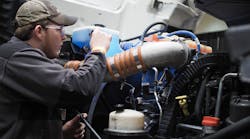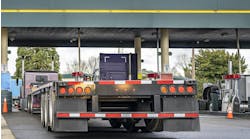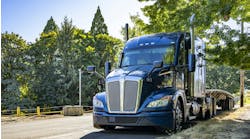Make sure you are not letting knowledge walk off your shop floor
The trucking industry is in the midst of a technician shortage and that shortage is expected to get worse. The Bureau of Labor Statistics estimates that by 2022 we will need 67,000 new technicians as well as 75,000 new diesel engine specialists.
Another problem the industry is facing is that as seasoned technicians are retiring, we are losing a lot of tribal/historic knowledge — the tips and tricks they have learned over the years to make repairs go a little more smoothly.
IDTechEX recently issued a report on the use cases for augmented reality, virtual reality and mixed reality. The report featured a case study showing the use of augmented reality products to help solve what is known as “the skills gap problem.” The skills gap occurs when your skilled, talented workers retire before the knowledge they have gained through their years of service can be transferred to the next generation work force.
The report discusses how augmented reality headsets can be used by seasoned workers to record their processes and how that information can then be shared with less experienced techs who can follow the steps, but couples it with use of technology.
It’s an interesting idea. I am not current on the cost of this type of technology so I can't speak to it from a cost-benefit standpoint. What I do know is that we have to do something to make sure that as our veteran technicians retire, we do not lose the wealth of knowledge they have acquired.
One way to make sure that knowledge gets passed along is to set up mentorship programs in which less experienced technicians are paired with those who have more experience. Working in tandem can help ensure that the newer technicians learn some of the “tricks of the trade,” but it is not necessarily a one-way street. Often the more experienced technicians have not mastered some of the new electronic diagnostics tools and they can gain mastery by working with newly minted technicians who not only grew up with technology but expect to be able to use it on their jobs.
Whether you go the high-tech route of investing in augmented reality or use the mentorship model, it is time to put something in place to ensure that when your baby boomer technicians walk out the door, all their knowledge does not just vanish.



